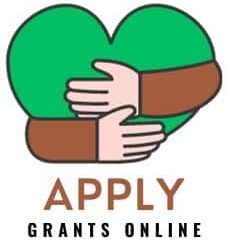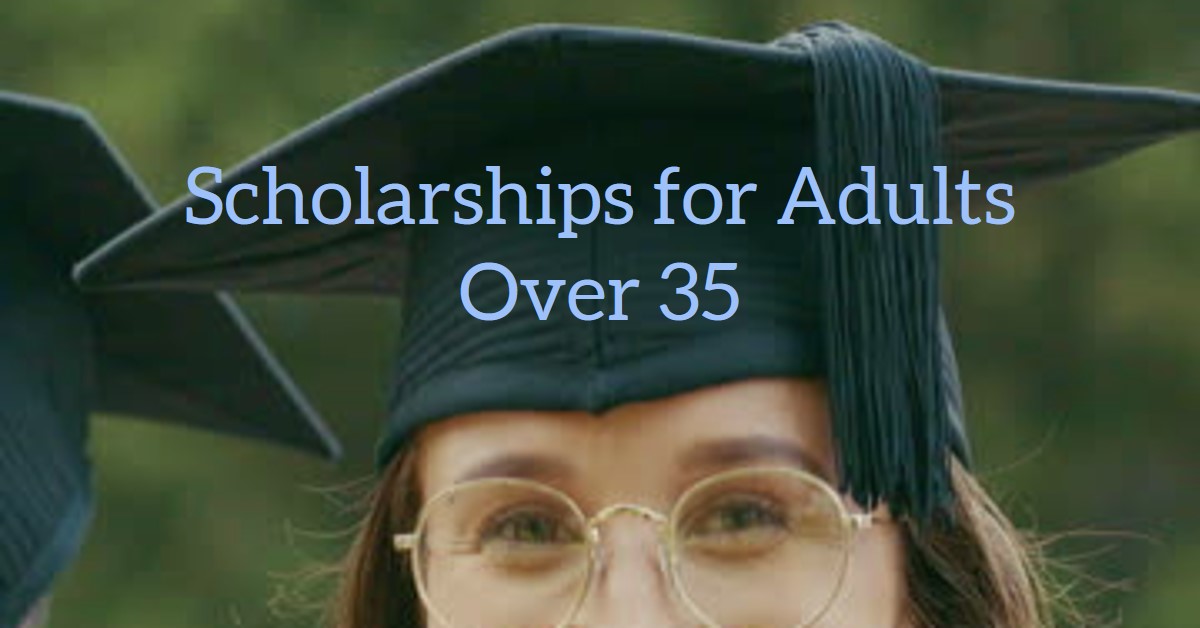I was sipping my morning coffee, scrolling through my phone, and I stumbled upon scholarships for 35+ age adults.
It felt like the universe was nudging me, whispering, “It’s not too late to chase your dreams.”
If you’re like me, thinking that educational opportunities are only for the young, think again.
In this article, I’ll list the top 5 Scholarships for Adults Over 35 and explain how to get them.
- What are Scholarships for Adults Over 35?
- Top 5 Scholarships for Adults Over 35
- How to Get Scholarships for Adults Over 35
- Comparing Scholarships for Adults Over 35
- How to Select the Best Scholarships for Adults Over 35
- Institution-Specific Scholarships and Programs
- Advice for Nontraditional Scholarship Applicants
- Additional Financial Support for Specific Demographics
- FAQs on Scholarships for Adults Over 35
- What types of financial aid are available for adults returning to school?
- How can I find scholarships specifically tailored for mature students over 35?
- Are there full ride scholarships available for adults seeking higher education?
- What grants exist for adults over the age of 35 to go back to college?
- How does the FAFSA process work for adults who are returning to school later in life?
- What resources are there for locating underutilized scholarships for adult learners?
- Conclusion
What are Scholarships for Adults Over 35?
Scholarships for adults over 35 are financial aid opportunities specifically designed to support non-traditional students who are returning to education or pursuing higher education later in life. These scholarships aim to ease the financial burden of tuition, books, and other educational expenses, thereby making it more feasible for adults to achieve their academic and career goals.
They cater to a diverse range of individuals, including those changing careers, seeking advancement, or fulfilling lifelong learning aspirations.
If you are a senior, refer to my Free College After 50 post instead.
Top 5 Scholarships for Adults Over 35

These are the top 5 Scholarships for Adults Over 35:
1. Jeannette Rankin Women’s Scholarship Fund
- Eligibility: Women, age 35 or older
- Award: Varies
- Requirement: Must demonstrate financial need.
2. Sallie Mae’s Scholarship Program
- Eligibility: U.S. citizens, non-traditional students
- Award: $2,000
- Requirement: Verified by the scholarship providing organization.
3. Imagine America Adult Skills Education Program (ASEP)
- Eligibility: Adults over 21, enrolling in participating colleges
- Award: Up to $1,000
- Requirement: Application through the Imagine America Foundation.
4. Ford Opportunity Program
- Eligibility: Parents and students over 25
- Award: Not specified
- Requirement: Must be pursuing an undergraduate degree.
5. Scholarships360 “No Essay” Scholarship
- Eligibility: All grade levels
- Award: $10,000
- Requirement: No essay required, application open to all students.
To further enhance your journey with these opportunities, explore our detailed guide on the College Career Advancement Grant.
How to Get Scholarships for Adults Over 35
Follow these steps to get Scholarships for Adults Over 35:
Steps to Apply for FAFSA
- Gather Necessary Documents: Applicants must have their Social Security number, recent tax returns, bank statements, and any investment records ready.
- Visit the official Free Application for Federal Student Aid (FAFSA) website.
- Select the “Start A New FAFSA” button if you are a first-time user.
- Create an Account: Applicants need an FSA ID, which serves as a legal signature and grants access to the FAFSA form.
- Fill Out the Application: Input personal and financial information accurately to ensure maximum aid eligibility.
- Submit the Form: The FAFSA can be submitted online, and keeping a copy for personal records is advisable.
- Review Student Aid Report: After submission, applicants receive a Student Aid Report (SAR) outlining federal student aid eligibility.
Eligibility for Federal Assistance
- Demonstrate Financial Need: Scholarships for adults typically require proof of financial need, which can be determined through the FAFSA.
- Enrollment in an Eligible Program: Candidates must be enrolled or accepted for enrollment in an eligible degree or certificate program.
- Status: Applicants must be U.S. citizens or eligible non-citizens with a valid Social Security number.
Academic Achievement: Some scholarships and federal aid options like the Pell Grant consider academic progress or achievements.
Pell Grant: To qualify, adults over 35 must display exceptional financial need; the Pell Grant does not require payback, distinguishing it from loans.
If you’re seeking additional resources, our article on College Grants for Minorities offers valuable insights that complement your educational funding strategy.
Comparing Scholarships for Adults Over 35
This table compares all the Scholarships for Adults Over 35:
| Scholarship Name | Eligibility Criteria | Award Amount | Specific Requirement |
|---|---|---|---|
| Jeannette Rankin Women’s Scholarship Fund | Women, age 35 or older | Varies | Must demonstrate financial need |
| Sallie Mae’s Scholarship Program | U.S. citizens, non-traditional students | $2,000 | Verified by the scholarship providing organization |
| Imagine America Adult Skills Education Program (ASEP) | Adults over 21, enrolling in participating colleges | Up to $1,000 | Application through the Imagine America Foundation |
| Ford Opportunity Program | Parents and students over 25 | Not specified | Must be pursuing an undergraduate degree |
| Scholarships360 “No Essay” Scholarship | All grade levels | $10,000 | No essay required, application open to all students |
How to Select the Best Scholarships for Adults Over 35
Consider these points to select the Best Scholarships for Adults Over 35:
- Assess Your Goals and Needs: Start clearly understanding what you want to achieve. Are you looking to change careers, advance in your current field, or finally pursue that dream degree? Your goals will dictate the types of programs and scholarships that are best for you.
- Research Widely: Don’t limit yourself to the first few options you find. There are countless scholarships out there, from those offered by universities and colleges to those available through private organizations and nonprofits. Use scholarship search engines, contact schools directly, and look for community-based organizations supporting adult learners.
- Check Eligibility Criteria Carefully: Scholarships for adults over 35 often have specific eligibility criteria, such as age, career field, life circumstances, or educational goals. Ensure you fully understand these requirements before applying to ensure you’re a good fit.
- Consider the Scholarship’s Value: Beyond the monetary value, consider what else the scholarship offers. Some include mentorship opportunities, networking events, or additional resources that can be invaluable as you navigate your education and career path.
- Evaluate Application Requirements: Some scholarships might require essays, recommendation letters, or proof of current or previous work experience. Assess what each scholarship requires and determine if you have the time and resources to develop a strong application.
- Look for Flexible Options: As an adult learner, flexibility might be key. Look for scholarships that offer part-time study options or apply to online programs if that suits your lifestyle better.
- Seek Feedback: Before submitting your application, seek feedback from friends, family, or mentors. A second pair of eyes can offer valuable insights and catch any errors.
- Apply Broadly but Strategically: Don’t put all your eggs in one basket, but don’t waste time applying for scholarships that don’t fit your goals or circumstances. Prioritize scholarships that align closely with your profile and needs.
- Keep Track of Deadlines: Create a calendar specifically for scholarship deadlines to ensure you don’t miss out on any opportunities due to a simple oversight.
- Stay Positive and Persistent: The process can be competitive and time-consuming, but persistence is key. Rejection is part of the journey, but so is success. Keep applying and refining your approach as needed.
Institution-Specific Scholarships and Programs
Many universities and vocational institutions offer scholarships specifically designed for adult learners over 35, aiming to give them an opportunity to pursue higher education or enhance their professional skills.
University-Based Funding
Many universities provide funding opportunities catered to adult learners seeking to pursue a graduate degree or continue their education. The Ford Opportunity Program Scholarship is a notable example. It is designed for parents or students aged 25 or older, but if you’re over 35 and looking to return to school, this program may still apply to you. Additionally, the Alpha Sigma Lambda Scholarship supports non-traditional students in their pursuit of higher education, with awards that can range up to $3,000.
Vocational and Trade School Scholarships
Scholarships are also available for adults over 35 who are interested in pursuing education at a vocational or trade school. These institutions often facilitate scholarships for mature students to support their pursuit of practical and industry-specific skills. The American Legion Auxiliary Non-Traditional Student Scholarship is one such program that awards $2,000 to support students, which may include those attending vocational schools. For those interested in tuition-free options for adults over 50, exploring programs on how to get Free College After 50 offers a potential pathway to education without financial burden.
Advice for Nontraditional Scholarship Applicants
Nontraditional students, such as adult learners, single moms, and low-income women, face unique challenges when returning to education. The pursuit of scholarships is a critical step in making this transition smoother and more affordable.
Writing a Winning Personal Statement
A personal statement is an applicant’s chance to directly communicate with the scholarship committee. Adult learners should craft their narrative to highlight life experiences, resilience, and the wisdom they bring to the higher education landscape. When writing, it’s essential to be clear about career goals and how the scholarship support aligns with their academic pursuits. For those looking into scholarships like the Return2College program or scholarships aimed at single moms, weaving in personal stories that connect with the scholarship’s purpose can distinguish an application.
Maintaining Scholarship Eligibility
Scholarship eligibility often hinges on maintaining certain academic standards and progresses. Nontraditional students must be mindful of these requirements; for instance, preserving a minimum GPA or completing a specific number of credits per semester. For programs targeting re-entry women scholarships, staying eligible might involve community service or part-time work. A strategy to stay on track is to set regular academic check-ins and make full use of campus support services.
Each piece of advice aims to leverage the unique backgrounds and life experiences that nontraditional students, such as low-income women, bring to their educational journeys, while focusing on the practical steps needed for scholarship success.
Additional Financial Support for Specific Demographics
Scholarship opportunities abound for adults over 35 who fall into specific demographics, such as military service members and single or working parents. These scholarships acknowledge the unique challenges faced by these groups and aim to provide financial assistance tailored to their circumstances.
Support for Veteran and Military Service Members
Veterans and active members of the U.S. Army and other military branches have access to a variety of scholarships and educational benefits. Specifically tailored programs offer substantial support, recognizing their service and sacrifices.
- G.I. Bill® Benefits: Veterans can use these benefits to cover tuition and fees, often including funding for housing and books.
- American Legion Scholarships: Various scholarships are available for veterans, service members, and their families.
- Boomer Benefits Scholarship: This scholarship focuses on providing financial support to boomers who are returning to school to enhance their career prospects.
Scholarships for Single Parents and Working Adults
Single and working parents often juggle multiple responsibilities. Scholarships aimed at these individuals acknowledge the need for flexibility and financial support.
- Patsy Takemoto Mink Education Support Award: Designed for low-income parents, this award assists mothers in pursuing education and training.
- Ford Opportunity Program: This is specifically targeted for parents of any age who are pursuing a post-secondary education.
By assisting exclusive to their needs, these scholarships aim to reduce financial strain and make higher education more accessible for adults over 35 with particular life circumstances.
Don’t miss our piece on STEM Grants for College, a crucial resource for anyone looking to advance in science, technology, engineering, or mathematics fields.
FAQs on Scholarships for Adults Over 35
These are the most frequently asked questions on Scholarships for Adults Over 35:
What types of financial aid are available for adults returning to school?
Various financial aid options exist for adults returning to school, including scholarships, grants, loans, and sometimes employer assistance programs.
How can I find scholarships specifically tailored for mature students over 35?
To locate scholarships for students over 35, individuals can utilize search engines like the U.S. News Scholarship Finder or other databases.
Are there full ride scholarships available for adults seeking higher education?
Full ride scholarships for adults are rare but do exist. They are offered by universities, private organizations, or through specific programs aimed at encouraging adults to pursue higher education.
What grants exist for adults over the age of 35 to go back to college?
Adult learners over 35 have grants at their disposal such as the Pell Grant and other government-sponsored or private funds that do not require repayment.
How does the FAFSA process work for adults who are returning to school later in life?
For adults returning to school, completing the Free Application for Federal Student Aid (FAFSA) is critical to determine eligibility for federal financial aid. It assesses the applicant’s financial need and considers their income and assets to decide aid qualification.
What resources are there for locating underutilized scholarships for adult learners?
Resources for finding lesser-known scholarships include local community foundations, professional associations, and nonprofits. Adults should also consult the financial aid office at prospective colleges for additional insider knowledge on underutilized scholarships.
Conclusion
In conclusion, scholarships for adults over 35 offer a beacon of hope and an invaluable resource for those looking to expand their educational horizons later in life. Whether you’re aiming to switch careers, advance in your current field, or finally pursue your dream degree, these scholarships can provide the financial support necessary to make your goals a reality.


